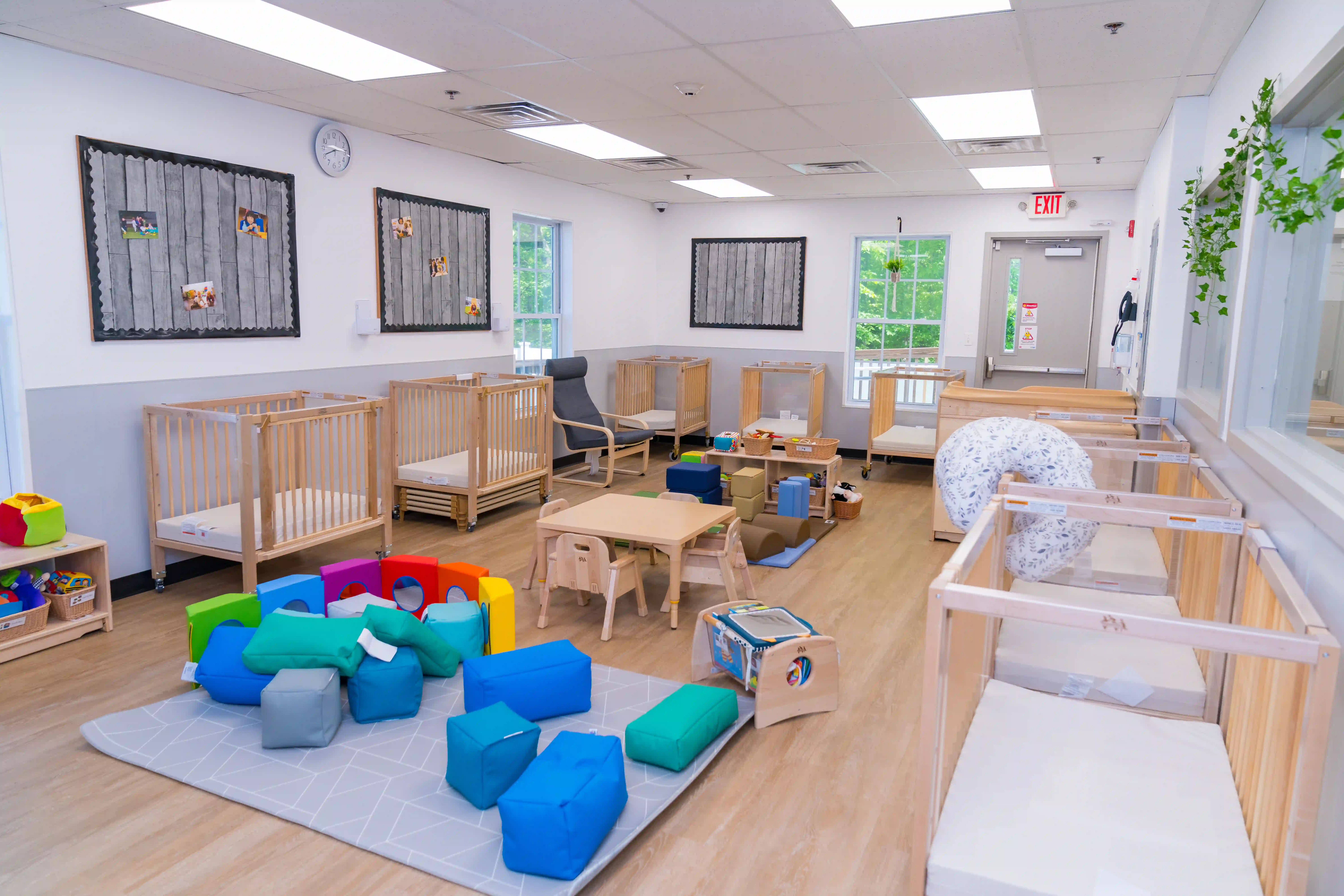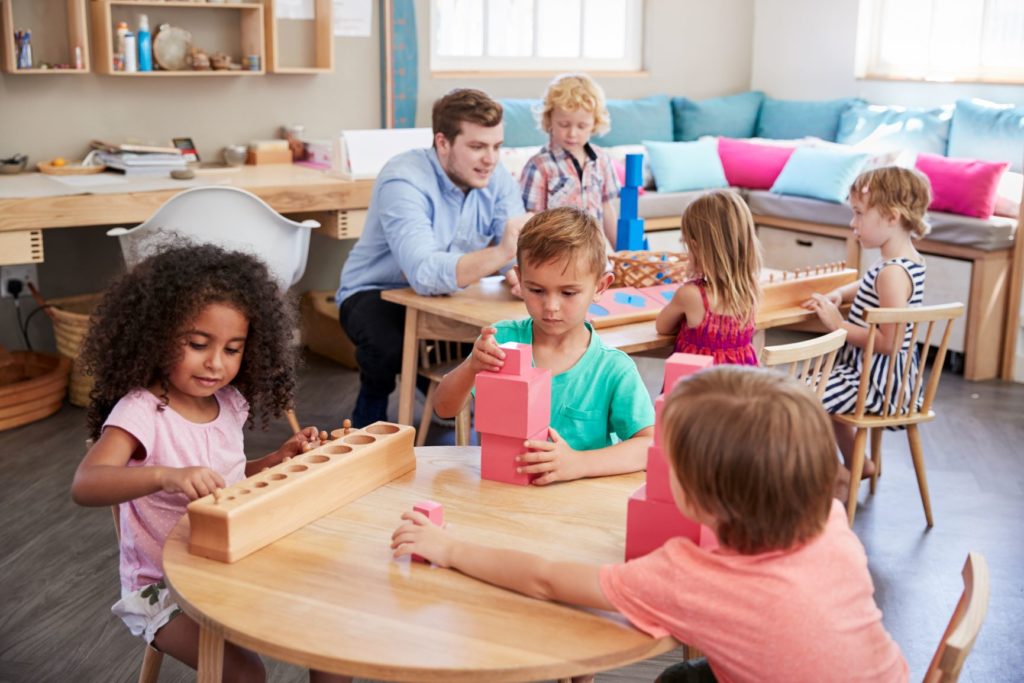Reasons To Choose Of Choosing Professional And Safe Childcare Near Me
The Duty of DAYCARE in Fostering Social Abilities and Very Early Learning
Day care offers as a significant atmosphere for young kids, assisting in vital social interactions that promote early discovering. In this organized setting, children engage with caretakers and peers, developing vital interaction and cooperation skills. As they navigate play and different tasks, they find out to deal with disputes and develop psychological knowledge. Understanding the nuances of these interactions reveals the profound influence childcare has on a child's development, shaping their future connections and scholastic preparedness. What details abilities do youngsters acquire in this setting?
The Significance of Social Communication in Day Care
While several parents recognize the importance of early youth education, the function of social interaction in day care is frequently undervalued. Childcare setups provide children with indispensable chances to engage with peers, fostering important social skills. Throughout these developmental years, youngsters discover to navigate various social characteristics, such as sharing, cooperation, and problem resolution. Interacting with varied age and personalities improves their capability to adjust to various settings and establish empathy towards others.

Structure Interaction Abilities Via Play
Play works as a powerful medium for youngsters to construct important communication abilities in day care setups. Via different play tasks, children talk, share their ideas, and find out to listen to others. Parlor games, for circumstances, encourage them to use language in various contexts, advertising vocabulary growth and understanding of social cues.

Narration throughout playtime allows kids to communicate concepts and emotions, aiding them develop narrative skills and self-confidence in their spoken expressions. Generally, play not just functions as a delightful pastime however additionally as a vital system for developing the communication abilities essential for successful social communications in later life.
Encouraging Teamwork and Synergy
Collaboration and team effort are essential skills that kids can grow in childcare settings. Via numerous group activities, such as building projects or collaborative games, children learn to share obligations and pursue usual objectives. These communications cultivate an understanding of the importance of listening to others, working out functions, and jeopardizing when necessary.
In childcare setups, caretakers typically produce chances for kids to participate in team effort by encouraging them to join group tasks. This not just aids kids develop social bonds however also cultivates a feeling of belonging and area.
As they browse these participating experiences, kids acquire important insights right into the characteristics of collaborating with peers. They discover to appreciate diverse perspectives and recognize that each participant adds distinctively to the group effort. Inevitably, these very early lessons together and synergy prepared for much healthier partnerships and reliable cooperation in future social and scholastic setups.
Structured Learning Activities and Cognitive Growth
Structured knowing activities play an indispensable duty in promoting cognitive growth in kids (Childcare North York). These tasks, which include challenges, narration, and hands-on experiments, stimulate essential thinking and analytic abilities. In a day care setup, organized knowing urges children to engage with their peers, improving their ability to procedure details and recognize different concepts
Through led play and interactive jobs, kids create fundamental skills such as numeracy and proficiency. Activities centered around numbers can assist kids realize mathematical concepts, while storytelling improves language procurement and comprehension. Furthermore, organized discovering allows instructors to analyze developmental progress and tailor activities to individual knowing requirements.

Incorporating a diverse variety of organized tasks not just advertises cognitive development however also prepares youngsters for future scholastic success. By supplying a well balanced atmosphere that fosters exploration and questions, childcare programs play a vital function in shaping the cognitive abilities of young students.
Promoting Psychological Knowledge and Confidence
Emotional knowledge and self-confidence are necessary elements of a child's growth, matching the cognitive abilities fostered with structured knowing activities. In day care settings, children are offered with chances to share their emotions and take part in social interactions, which are vital for constructing psychological understanding. Through guided play and team activities, youngsters discover to recognize their feelings, recognize those of others, and establish empathy.
In addition, interaction with caretakers and peers helps to grow self-esteem and strength. Positive support and motivation from grownups equip youngsters to take dangers and face obstacles, fostering a feeling of achievement. As they browse social dynamics, kids construct self-confidence in their abilities to connect, team up, and fix problems - Daycare North York. This nurturing environment enables the progressive growth of psychological intelligence, which is necessary for future interpersonal connections and general health. Consequently, day care plays a substantial duty in fostering both emotional intelligence and self-confidence in children
Frequently Asked Questions
Exactly How Can Moms And Dads Pick the Right Childcare for Their Child?
Parents ought to think about variables such as location, staff certifications, safety and security criteria, educational program, and reviews from other moms and dads when picking the best day care for their child, ensuring it straightens with their child's developmental needs and household worths.
What Age Is Finest for Starting Day Care?

Just How Does Day care Influence Children's Actions at Home?
Childcare typically favorably influences youngsters's behavior in the house by improving social abilities, promoting freedom, and encouraging emotional law (Childcare Near Me). As a result, kids might exhibit enhanced interaction and cooperation, causing more harmonious household check characteristics
Are There Any Type Of Drawbacks to Daycare Participation?
Yes, there are disadvantages to childcare attendance, including prospective splitting up anxiousness, exposure to diseases, and inconsistent caregiving. These aspects can impact a youngster's emotional well-being and adjustment in the house, affecting total family members dynamics.
How Can Parents Support Social Skills Discovered at Day Care?
Parents can support social skills learned at daycare by promoting playdates, urging participating tasks, modeling favorable communications, discussing sensations, and reinforcing sharing and interaction in the house, therefore boosting their youngster's social growth and self-confidence.
Day care serves as a considerable atmosphere for young children, facilitating vital social interactions that advertise very early understanding. Day care settings offer children with indispensable chances to engage with peers, fostering essential social abilities. Play offers as a powerful medium for directory youngsters to construct important source critical interaction abilities in daycare setups. In childcare settings, children are provided with opportunities to share their feelings and engage in social interactions, which are vital for developing emotional recognition. Day care frequently positively affects kids's behavior at home by enhancing social abilities, promoting independence, and encouraging psychological law.